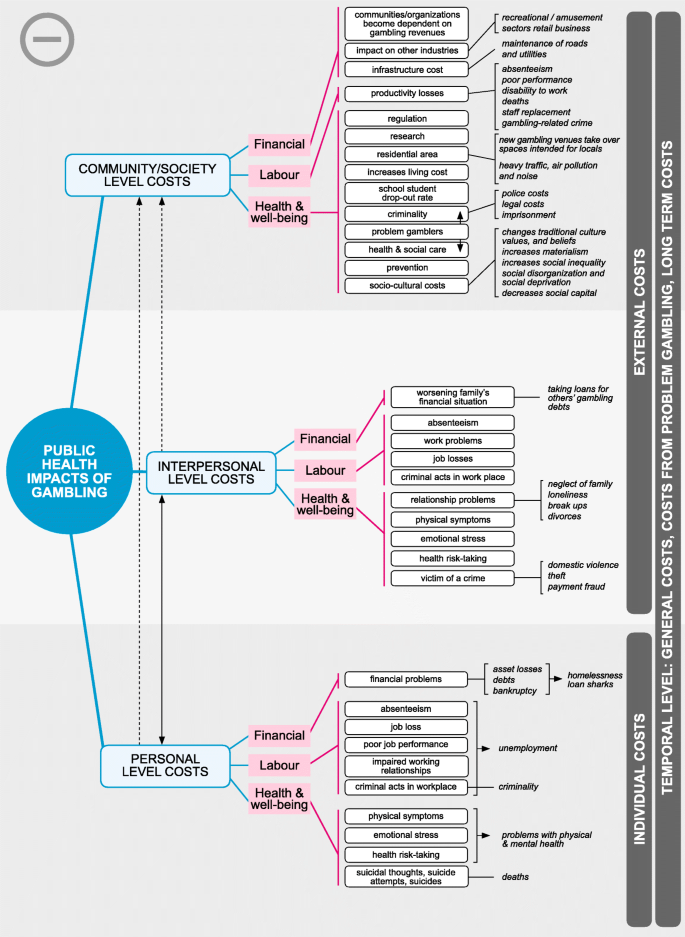Pathological Gambling Experiment
Evidence indicates that pathological gambling is an addiction similar to chemical addiction. Monetary reward in gambling experiment produces brain activation very similar to that observed in drug addicts when they receiving an infusion of the drug.
- Pathological Gambling Experiment Meaning
- Pathological Gambling Experiments
- Pathological Gambling Experiment Games
- Pathological Gambling Experiment Definition
Problem gambling is often associated with increased suicidal ideation and attempts. A gambler who does not receive treatment for pathological gambling may contemplate suicide during the desperation phase may .
It is a challenge to treat compulsive gambling partly because most people have a hard time admitting they have a problem. However, once the person acknowledges that he is a compulsive gambler treatment helps him regain a sense of control — and may even help heal damaged relationships or finances.

Some medications that have been found useful in treating substance abuse, also help treat compulsive gambling. Psychological treatments, such as behavior therapy or cognitive behavioral therapy, may be beneficial for compulsive gambling. They help identify unhealthy, irrational and negative beliefs and replace them with healthy, positive ones. and develop skills to reduce the urge to gamble.
Historically, pathological gambling was thought to be an impulse control disorder, a psychiatric disorder characterized by the uncontrollable desire to harm oneself or others (such as borderline personality disorder, antisocial personality disorder, or even attention deficit hyperactivity disorder). 23 The Fix explains the difference between an impulse control disorder and an addiction. Gambling is an interesting psychological phenomenon, and there has been extensive research on how psychological processes affect gambling behavior. Here are five interesting gambling phenomena.
Last updated: 04/1/2019
Author: Addictions.com Medical Review
Pathological Gambling Problem or compulsive gamblers are individuals whose betting activities have become controversial, perhaps even dangerous. Pathological gambling caused by excessive. The researchers conducted an experiment on compulsive gambling patients using a standard experimental economics task and a mathematical. Pathological gambling (PG) is a relatively common disorder associated with significant personal, familial, and social costs. The condition is currently classified as an impulse control disorder, although similarities exist with other disorders, particularly substance addictions.
Reading Time: 3minutes
Compulsive, also called problem, gambling may be a different disorder entirely from pathological gambling. Depending on your habits, you may be able to tell if you are a compulsive or a pathological gambler and where you should go to find help.
Pathological Gambling Experiment Meaning
Compulsive Vs. Pathological Gambling
Problem or compulsive gamblers are individuals whose betting activities have become controversial, perhaps even dangerous. Their habits have likely led them to making mistakes, whether it is forgetting to pick up their children or taking care of something at home, calling into work so often their boss notices, or spending money meant for other things on wagering. However, they may be able to cut back on these activities if they realize the damage it is causing in their life.
According to the National Library of Medicine, “Pathological gambling is being unable to resist impulses to gamble, which can lead to severe personal or social consequences.” This also causes many issues in the individual’s life, but unlike the former disorder, pathological gamblers cannot stop these dangerous habits, even if they try. They will need serious professional help in order to do so, and they may need to stop gambling and cease any other activities related to it in order to avoid any issues in the future.

Which Type of Gambler Am I?
A gambling problem can lead to financial issues and even bankruptcy.
Pathological Gambling Experiments
Ask yourself the questions below. Make sure to answer truthfully in order to find out which disorder is more likely associated with your behavior and how serious your problematic wagering has become.
Pathological Gambling Experiment Games
- Do you ever lie to others when you are going out to gamble?
- Would you always prefer to be betting, wagering, or playing instead of doing something else?
- Do you sometime feel bad after wagering too much or losing money?
- Do you ever use money meant for other things when you place bets?

Pathological Gambling Experiment Definition

If you answered yes to these questions, you may be a problem or compulsive gambler. You will likely be able to cut back on your habit with the help of your loved ones. However, it is also important to ask yourself the questions below as well:
- Do you feel restless, sad, anxious, or irritable when trying to cut back?
- Have these feelings caused you to go back to gambling?
- Have you ever committed a crime to get more betting money?
- Do you engage in these activities to escape your problems or the negative feelings you experience?
- Do you bet large sums of money to try and “make up” for past losses?
- Have you ever lost a job, relationship, education, or another important opportunity in the past due to this habit?
- Are you constantly preoccupied with how to make more money or win back your loses?
- Have you tried to quit or cut back more than twice and not succeeded?
- Do the other people in your life refuse to give you money?
If you answered yes to these questions, it is likely that you have an addiction and have become a pathological gambler. You will need professional addiction treatment in order to stop.